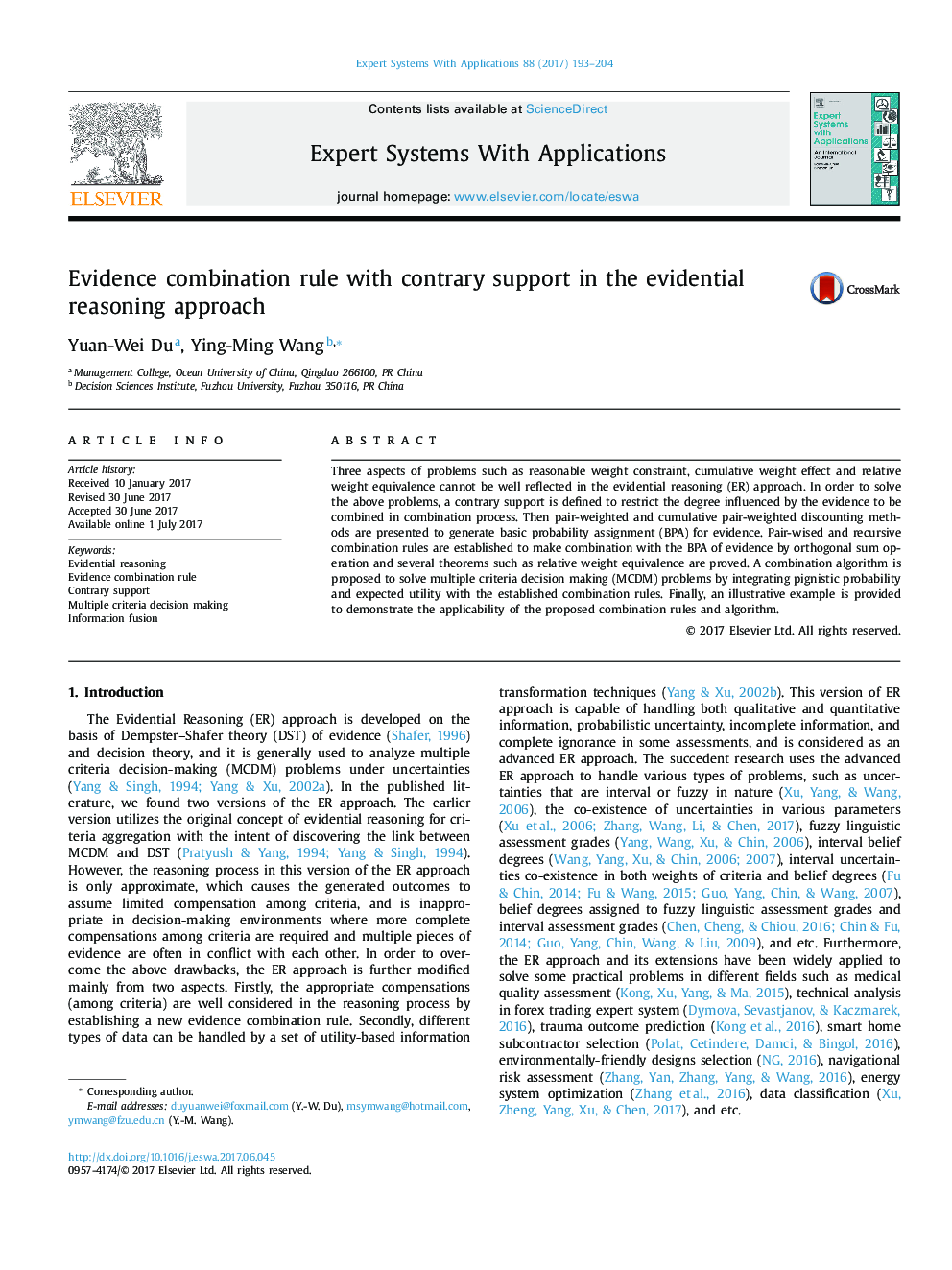| Article ID | Journal | Published Year | Pages | File Type |
|---|---|---|---|---|
| 4943281 | Expert Systems with Applications | 2017 | 12 Pages |
Abstract
Three aspects of problems such as reasonable weight constraint, cumulative weight effect and relative weight equivalence cannot be well reflected in the evidential reasoning (ER) approach. In order to solve the above problems, a contrary support is defined to restrict the degree influenced by the evidence to be combined in combination process. Then pair-weighted and cumulative pair-weighted discounting methods are presented to generate basic probability assignment (BPA) for evidence. Pair-wised and recursive combination rules are established to make combination with the BPA of evidence by orthogonal sum operation and several theorems such as relative weight equivalence are proved. A combination algorithm is proposed to solve multiple criteria decision making (MCDM) problems by integrating pignistic probability and expected utility with the established combination rules. Finally, an illustrative example is provided to demonstrate the applicability of the proposed combination rules and algorithm.
Related Topics
Physical Sciences and Engineering
Computer Science
Artificial Intelligence
Authors
Yuan-Wei Du, Ying-Ming Wang,
